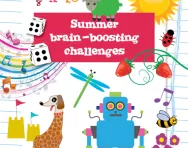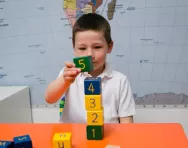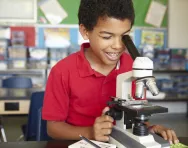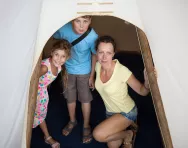Important update from TheSchoolRun
For the past 13 years, TheSchoolRun has been run by a small team of mums working from home, dedicated to providing quality educational resources to primary school parents. Unfortunately, rising supplier costs and falling revenue have made it impossible for us to continue operating, and we’ve had to make the difficult decision to close. The good news: We’ve arranged for another educational provider to take over many of our resources. These will be hosted on a new portal, where the content will be updated and expanded to support your child’s learning.
What this means for subscribers:
- Your subscription is still active, and for now, you can keep using the website as normal — just log in with your usual details to access all our articles and resources*.
- In a few months, all resources will move to the new portal. You’ll continue to have access there until your subscription ends. We’ll send you full details nearer the time.
- As a thank you for your support, we’ll also be sending you 16 primary school eBooks (worth £108.84) to download and keep.
A few changes to be aware of:
- The Learning Journey weekly email has ended, but your child’s plan will still be updated on your dashboard each Monday. Just log in to see the recommended worksheets.
- The 11+ weekly emails have now ended. We sent you all the remaining emails in the series at the end of March — please check your inbox (and spam folder) if you haven’t seen them. You can also follow the full programme here: 11+ Learning Journey.
If you have any questions, please contact us at enquiries@theschoolrun.com. Thank you for being part of our journey it’s been a privilege to support your family’s learning.
*If you need to reset your password, it will still work as usual. Please check your spam folder if the reset email doesn’t appear in your inbox.
What is a Montessori school?

In the days when you were looking for nurseries and pre-schools, you may well have come across a number of Montessori establishments. But while this model of education is best known in early years environments, a small number of UK primary schools – including four state schools – are using Montessori methods.
Montessori education explained
The Montessori movement was founded by Dr Maria Montessori, one the most influential early years educationalists of the 20th century. A medical doctor by training, she became interested in education through her work with children with special needs, and began to set up schools, initially for disadvantaged children.
Most Montessori establishments today are pre-schools and nurseries, but there are four state schools in England using Montessori methods in the Early Years Foundation Stage (EYFS: Nursery and Reception), with plans to extend the model up the school. There are also some independent Montessori schools covering the whole primary range.
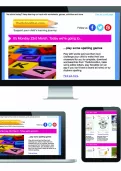
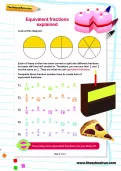
Boost Your Child's Learning Today!
- Start your child on a tailored learning programme
- Get weekly English & maths resources sent direct to your inbox
- Keep your child's learning on track
‘What makes Montessori unique is the emphasis on individual progress and giving children opportunities to extend and engage with the learning environment for long periods of time,’ explains Barbara Isaacs, Chief Education Officer for Montessori St Nicholas.
Unlike in a typical classroom, where teachers will have a clear plan and timetable for the day that all children are expected to follow, in Montessori schools, a range of activities is set up and children choose what they want to do, engaging with each for as little or as long as they want. ‘It’s up to the teacher to observe what a child is interested in and find other ways to engage them,’ says Barbara.
There are certain key principles of the Montessori movement:
Order and structure Although learning is child-led, children need order and structure to thrive. Everything in the classroom has its place, and children take responsibility for putting one activity away before moving on to another.
Sensory learning Children learn through the senses, so Montessori puts emphasis on preparing teaching materials with great care. ‘For example, children use proper ceramic tableware and glasses, rather than plastic child-safe ones,’ Barbara says.
Freedom The single most important factor in child development, according to Maria Montessori. The Montessori classroom provides experiences, activities and environments that encourage children to follow their natural instincts.
Sensitive periods The Montessori movement says that children move through ‘sensitive periods’ when they’re particularly receptive to learning a new skill, such as reading, writing or counting. Teachers watch out for these opportunities and take advantage of them, rather than trying to get a child reading or writing at a certain age.
Discipline is seen as something that should come from inside, rather than being imposed. Teachers focus on helping children develop social and emotional skills. Rewards and punishments are not used, and teachers will only step in when a child is behaving in a disruptive or upsetting way.
‘In any one morning in a Montessori classroom, a child might do up to nine activities: some alone, some with a friend, some in a small group and some with the teacher,’ Barbara explains. ‘The teacher’s role is to ensure that the environment is perfectly prepared, with everything ready for children to use to support their spontaneous choice. She will have a broad plan of what she would like children to be engaged in, based on their individual interests, and will observe and encourage them as they take part.’
In Montessori primary schools, there is a more curriculum-based structure; for example, there will be a set of tasks that children need to complete over the course of the week, but they choose when to do them.
‘Children take responsibility for doing these tasks and discussing them with the teacher, who will monitor their learning,’ Barbara adds. ‘They track progress through observations, rather than formal assessments and tests, and homework is rarely given.’
Why choose Montessori?
‘Montessori works really well alongside the EYFS curriculum, because both focus on the individual needs of the child, good relationships between teacher and learner, and a positive learning environment,’ says Barbara.
‘For me, the biggest benefit is the emotional wellbeing that comes from making choices independently, and knowing those choices come with responsibility. This capacity for a child to be in control of their own learning builds independence, autonomy and the ability to engage the attention for long periods of time, alongside social awareness.’
Results-wise, primary schools with a Montessori approach do well. ‘As a way of teaching, instinctively I know it’s right,’ says Carol Powell, the former headteacher of Gorton Primary School in Manchester, which uses Montessori methods in the EYFS. ‘The children are more skilled than they were before, our results have gone up, and the best thing for me is that they have improved the socialised behaviour.’
Montessori schools and special educational needs
Although the idea of leaving a child with special educational needs (SEN) to take responsibility for their own learning might seem far-fetched, Barbara says the Montessori model works well for many of these children.
‘Children with behavioural needs might take longer to settle into the self-regulated process, but being able to follow their individual interests improves their capacity to concentrate and engage,’ she explains. ‘It’s our belief that once a child finds something they’re interested in and that gives them pleasure, they will grow in understanding and self-control.’
What parents say
‘What struck me most about the Montessori classroom was that the level of stimulus was mind-blowing. It’s an environment that really allows children to grow. Teachers talk to children like equals, and the child dictates the pace of what they do day-to-day. Aurelia has developed a very firm sense of who she is. She’s confident talking to adults, and is very good at walking into a new environment and working out what she wants to explore. Montessori helped her learn constantly and absorb so much.’
Sharon Kemanes from South London, mum to Aurelia, five




